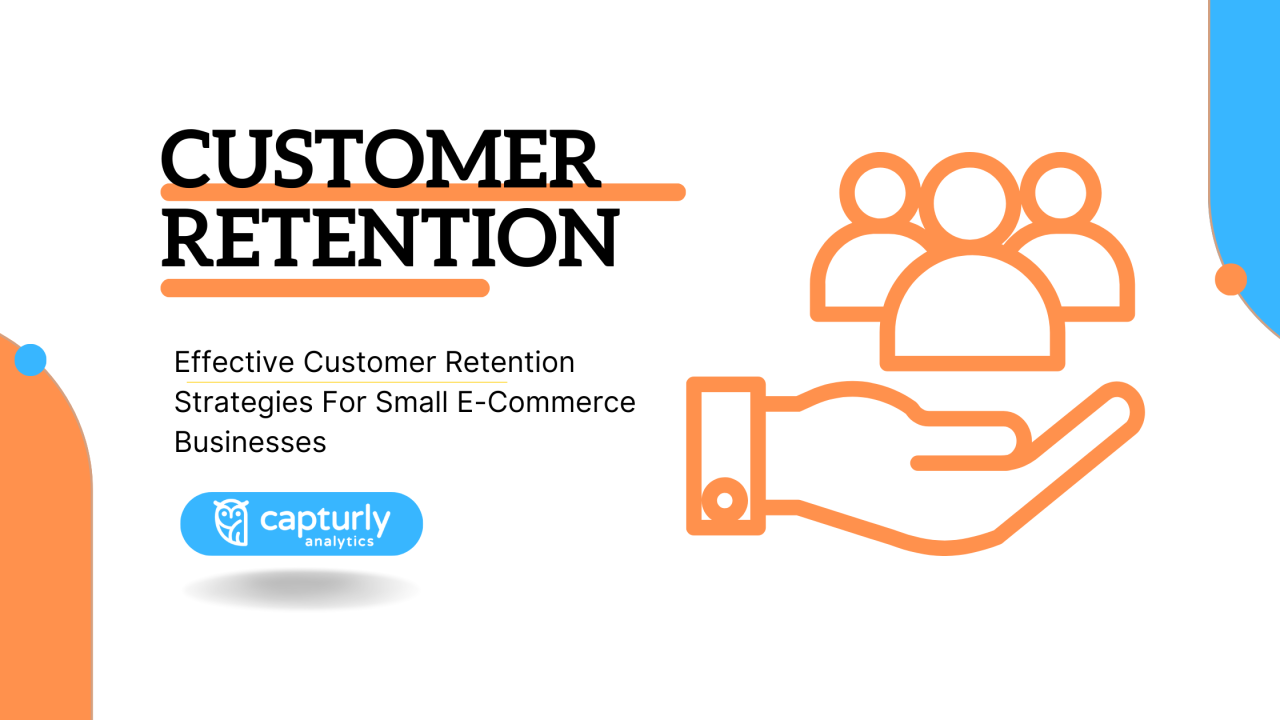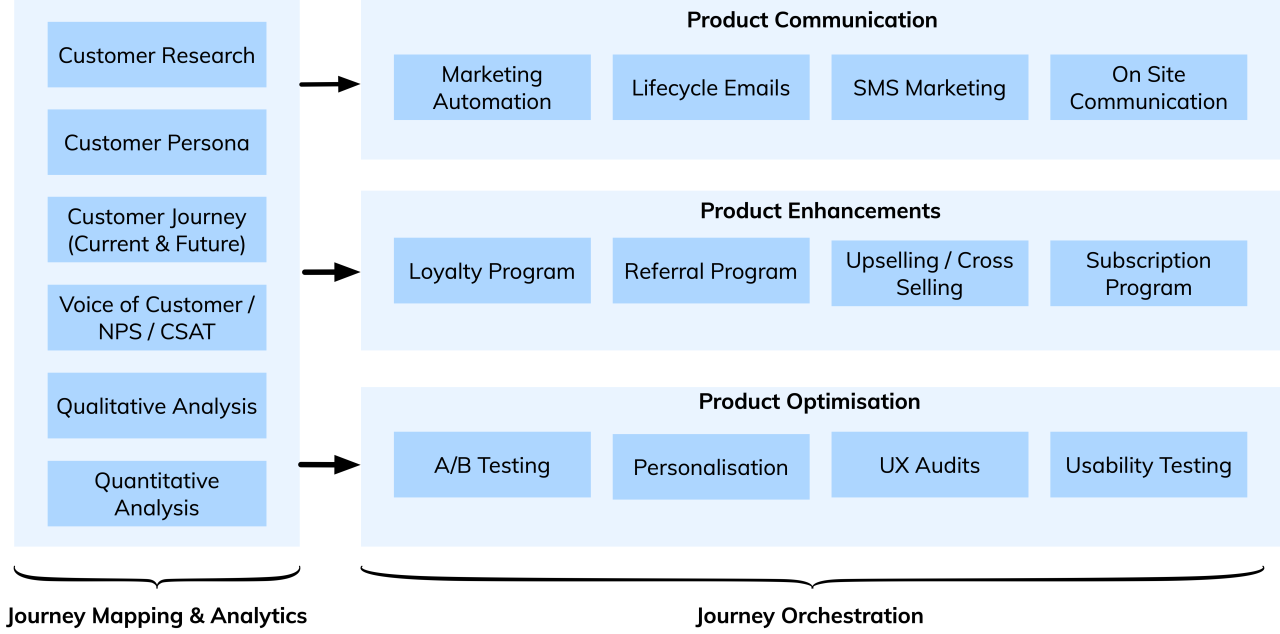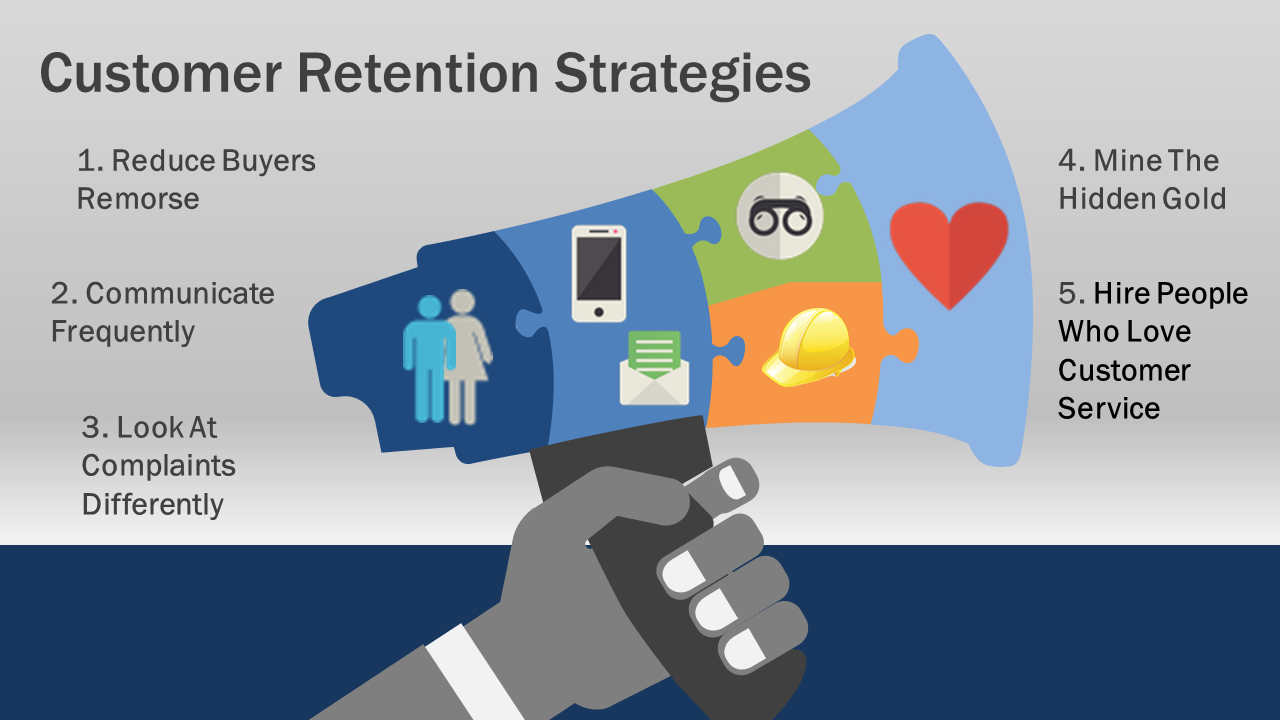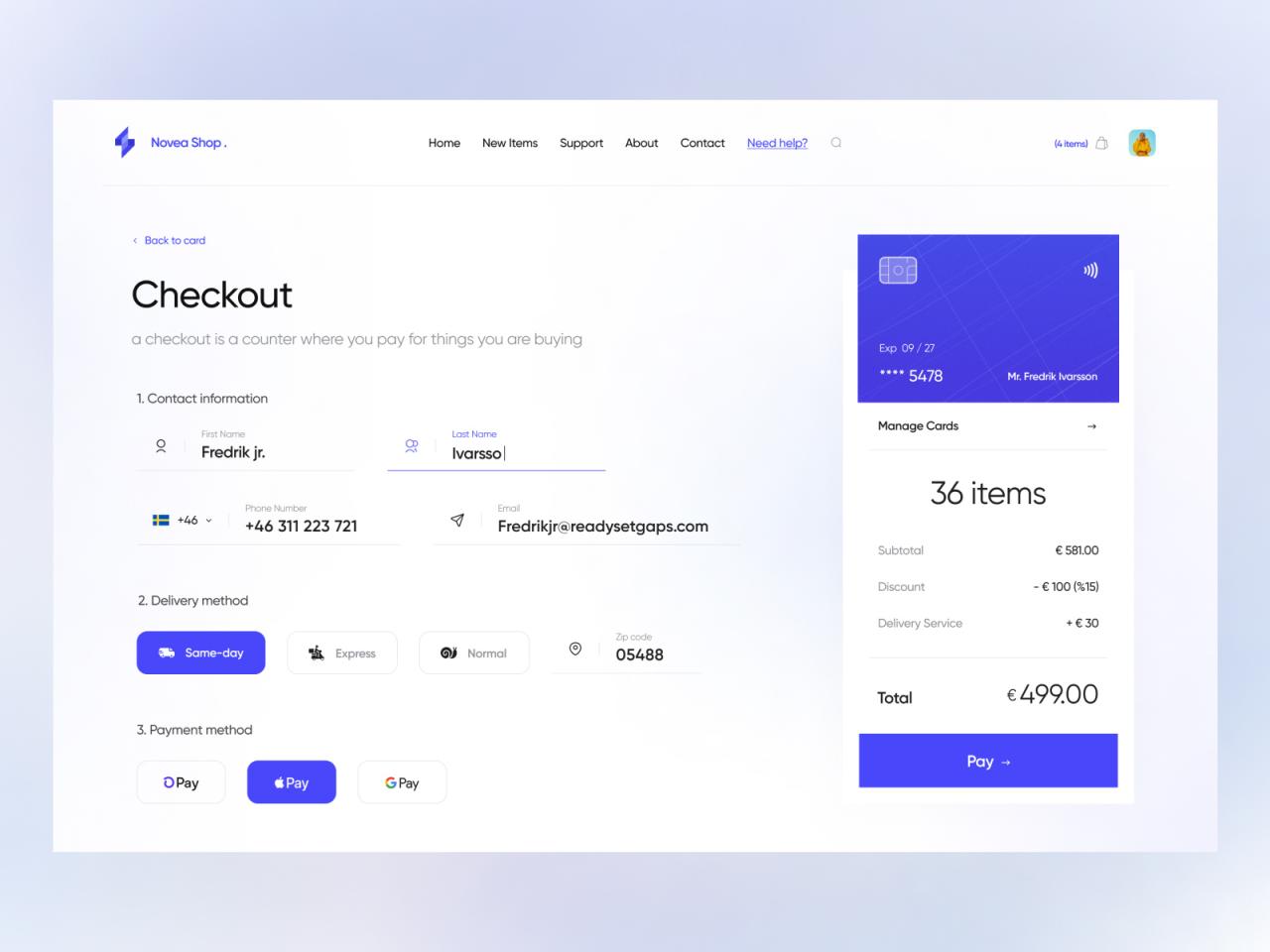E-Commerce Customer Retention Strategies

Embark on a journey to explore the realm of E-commerce customer retention strategies, where the key to success lies in understanding customer behavior, implementing personalization, effective communication, and loyalty programs. Discover how these strategies can elevate your business and foster long-lasting relationships with your customers.
Importance of E-commerce Customer Retention

Customer retention is a critical aspect of E-commerce businesses as it focuses on keeping existing customers engaged and loyal, rather than solely acquiring new ones. By nurturing relationships with current customers, businesses can drive repeat purchases, increase customer lifetime value, and ultimately boost revenue and growth.
Impact on Revenue and Growth
- Customer retention leads to increased revenue: Loyal customers are more likely to make repeat purchases and spend more per transaction, contributing significantly to overall revenue.
- Cost-effective: Acquiring new customers can be up to five times more expensive than retaining existing ones. By focusing on retention, businesses can optimize their marketing budget and resources.
- Word-of-mouth marketing: Satisfied customers who are retained are more likely to recommend the brand to others, leading to organic growth through positive word-of-mouth.
Examples of Successful E-commerce Companies
| Company | Retention Strategy |
|---|---|
| Amazon | Personalized recommendations, fast shipping, and excellent customer service. |
| Sephora | Beauty Insider loyalty program, exclusive offers, and personalized experiences. |
| Zappos | 365-day return policy, free shipping, and emphasis on customer satisfaction. |
Understanding Customer Behavior

Understanding customer behavior is crucial for designing effective customer retention strategies in E-commerce. By analyzing how customers interact with your website, products, and services, businesses can tailor their retention efforts to meet the specific needs and preferences of their target audience.
Role of Data Analytics
Data analytics plays a key role in analyzing customer behavior for retention purposes. By collecting and analyzing data related to customer interactions, purchase history, browsing patterns, and feedback, E-commerce businesses can gain valuable insights into what drives customer loyalty and engagement. This data can be used to identify trends, patterns, and opportunities for improving the overall customer experience.
- Tracking Customer Engagement: Monitoring metrics such as click-through rates, time spent on site, and repeat visits can help businesses gauge how engaged their customers are with their brand.
- Understanding Purchase Behavior: Analyzing factors like average order value, frequency of purchases, and product preferences can help businesses tailor their marketing and promotional strategies to encourage repeat purchases.
- Segmenting Customer Data: Dividing customers into different segments based on demographics, behavior, or preferences can help businesses create personalized retention strategies that resonate with each segment.
- Monitoring Customer Feedback: Paying attention to customer reviews, ratings, and feedback can provide valuable insights into areas for improvement and help businesses address customer concerns proactively.
Personalization in E-commerce Customer Retention: E-commerce Customer Retention Strategies
Personalization plays a crucial role in retaining E-commerce customers by creating a tailored and engaging shopping experience that strengthens the relationship between the customer and the brand. By customizing interactions based on individual preferences, behavior, and purchase history, E-commerce businesses can enhance customer loyalty and drive repeat purchases.
Importance of Personalization
Personalization allows E-commerce businesses to connect with customers on a deeper level, making them feel valued and understood. This leads to increased customer satisfaction, higher engagement, and ultimately, improved retention rates. By delivering relevant product recommendations, personalized offers, and targeted marketing messages, businesses can significantly impact customer retention and lifetime value.
- Utilizing customer data: E-commerce businesses can leverage customer data such as browsing history, purchase patterns, and demographic information to personalize the shopping experience. This can include recommending products based on past purchases or showing personalized content on the website.
- Personalized communication: Sending personalized emails, messages, and notifications can help E-commerce businesses stay connected with customers and provide them with relevant information. Addressing customers by their name and tailoring the communication to their preferences can enhance engagement and loyalty.
- Customized promotions: Offering personalized discounts, coupons, or promotions based on customer behavior can incentivize repeat purchases and encourage customer loyalty. By understanding what resonates with each customer, businesses can create targeted offers that drive conversion and retention.
Successful Personalization Strategies in E-commerce
One successful example of personalization in E-commerce is Amazon’s recommendation engine, which analyzes customer behavior and purchase history to suggest products that are likely to interest each individual. This personalized approach has been instrumental in driving sales and increasing customer retention for the platform.
Another effective strategy is the use of personalized product recommendations on the homepage or product pages, like those seen on websites such as Netflix or Spotify. By showcasing products or content tailored to each customer’s preferences, E-commerce businesses can create a more engaging and relevant shopping experience that encourages repeat visits and purchases.
Overall, personalization in E-commerce customer retention is a powerful tool that can help businesses build strong relationships with customers, drive loyalty, and ultimately, increase revenue. By understanding and catering to individual preferences, businesses can create a personalized shopping experience that keeps customers coming back for more.
Communication Strategies for Customer Retention
Effective communication plays a crucial role in retaining E-commerce customers by building trust, loyalty, and engagement. It allows businesses to connect with their customers on a personal level, understand their needs, and address any concerns promptly.
Significance of Communication in Customer Retention
Communication serves as the foundation for building long-lasting relationships with customers in the E-commerce industry. By maintaining open and transparent lines of communication, businesses can enhance customer satisfaction, increase brand loyalty, and encourage repeat purchases. Regular updates, order confirmations, personalized recommendations, and responsive customer support all contribute to a positive customer experience.
Various Communication Channels for Customer Retention
- Email Marketing: Sending personalized emails with product recommendations, promotions, and updates can keep customers engaged and informed.
- Social Media Engagement: Interacting with customers on social media platforms allows businesses to showcase new products, address queries, and receive feedback in real-time.
- Live Chat Support: Offering instant assistance through live chat helps in resolving customer issues quickly and efficiently.
- SMS Notifications: Sending order updates, delivery notifications, and exclusive offers via SMS can enhance customer engagement.
- Personalized Recommendations: Utilizing customer data to provide tailored product recommendations based on past purchases and preferences can boost sales and retention.
Examples of Effective Communication Strategies
- Thank-You Emails: Sending personalized thank-you emails after a purchase can show appreciation and encourage customers to return.
- Loyalty Programs: Communicating exclusive offers, discounts, and rewards through loyalty programs can incentivize repeat purchases.
- Surveys and Feedback Forms: Gathering customer feedback through surveys helps in understanding their needs and improving the overall shopping experience.
- Order Updates: Providing timely updates on order status, shipping, and delivery can keep customers informed and build trust in the brand.
- Social Media Contests: Hosting engaging contests on social media platforms can increase brand visibility, attract new customers, and retain existing ones.
Loyalty Programs and Incentives

Implementing loyalty programs and incentives is a powerful strategy for enhancing customer retention in E-commerce. By rewarding customers for their repeat purchases and engagement, businesses can build long-lasting relationships and foster loyalty. These programs not only encourage customers to return but also attract new customers through referrals and positive word-of-mouth.
Types of Loyalty Programs, E-commerce customer retention strategies
- Points-based systems: Customers earn points for each purchase, which can be redeemed for discounts or free products.
- Tiered loyalty programs: Customers move up tiers based on their spending, unlocking exclusive benefits and rewards.
- Cashback rewards: Customers receive a percentage of their purchase back in the form of cashback, encouraging repeat purchases.
Examples of Successful Loyalty Programs
Amazon Prime: Amazon offers free two-day shipping, exclusive deals, and streaming services to its Prime members, increasing customer loyalty and engagement.
Sephora Beauty Insider: Sephora’s loyalty program provides points for purchases, birthday gifts, and exclusive access to events, creating a sense of exclusivity and value for customers.
Starbucks Rewards: Starbucks rewards customers with free drinks, birthday treats, and personalized offers based on their purchase history, encouraging frequent visits and brand loyalty.
FAQ Summary
How can understanding customer behavior benefit E-commerce businesses?
Understanding customer behavior helps businesses tailor their strategies to meet customer needs effectively, leading to improved retention rates and customer satisfaction.
What role does personalization play in E-commerce customer retention?
Personalization creates a unique and tailored experience for customers, making them feel valued and increasing their loyalty to the brand.
Why are loyalty programs important in E-commerce customer retention?
Loyalty programs incentivize customers to continue engaging with the brand, fostering repeat purchases and long-term relationships.






